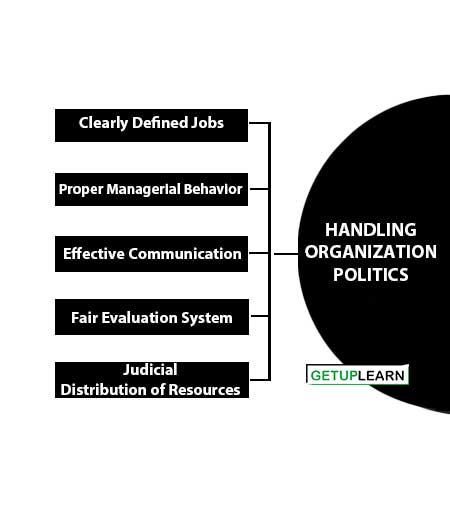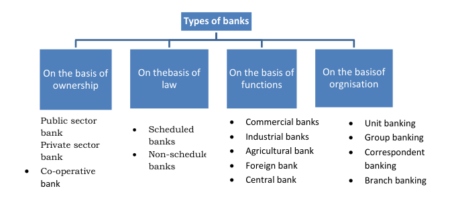Table of Contents
What is Organizational Politics?
Politics is a universal phenomenon. Politics relates to the way a person is able to get power over others and the way in which he uses power over others. Political behavior is not limited to those who hold public positions. It is found in every organization.
Organizational politics are informal, unofficial, and sometimes hidden efforts to sell ideas, influence an organization, increase power, or achieve other targeted objectives.
Organizational politics is a natural part of organizational life. Organizations that are driven by unhealthy levels of political behavior suffer from lowered employee organizational commitment, job satisfaction, and performance as well as higher levels of job anxiety and depression.
Definition of Organizational Politics
Politics in organization are those activities that are not required as part of one’s formal role in the organization, bit that influence, the distribution of advantages and disadvantages within the organization.
Stephen P. Robbins
Politics in an organization refers to those activities that are not required as part of one’s formal role in the organization, but that influence or attempt the distribution of advantages and disadvantages within the organization.
Farrell and Peterson
Politics is defined as those activities that are not required as part of one’s formal role in the organization, but that influence, or attempt to influence, the distribution of advantages and disadvantages within the organization.
Organizational politics is the management of influence to obtain ends not sanctioned by the organization or to obtain sanctioned ends through non-sanctioned means and the art of creative compromise among competing interests. The above definition clearly points out the following:
- Political behavior falls outside the ambit of one’s specified job requirements.
- It includes efforts to influence the goal, criteria, or processes employed for decision-making.
- It includes a variety of political behaviors such as withholding vital information from decision-makers, whistle-blowing, spreading rumors, leaking confidential information, etc.
In this context, it is necessary to make a distinction between legitimate and illegitimate power dimensions within organizational contexts.
Features of Politics
The following are the features of politics:
- Political behavior involves some kind of power either directly or indirectly. Power can be exercised by those who are in formal positions and enjoy authority. It can also be influenced by other persons close to those who hold formal authority.
- Politics involves behavior that is self-serving. It suggests that either organizational resources are used for personal benefits or benefits to be given to one person are given to another. In both cases, the decision is not rational from the organization’s point of view.
- Politics takes place when an individual recognizes that the achievement of his goals is influenced by the behavior of others. In such cases, politics involves the elimination of adversaries by the influential maneuvers of a member of the organization.
- All self-serving behaviors which do not involve the use of power or threat of the use of power cannot be termed as politics. For example, an employee’s asking for a raise is not political behavior, but the use of a threat to unionize to obtain a pay rise amounts to political behavior.
Factors Influencing Political Behavior
A number of factors are responsible for political behavior. These factors are grouped into individual factors and organizational factors:
- Political Skill
- High in Internal Locus of Control
- Investment in Organization
- Expectations of Success
- Scarcity of Resources
- Role Ambiguity
- Performance Evaluations and Promotions

Individual Factors
- Political Skill
- High in Internal Locus of Control
- Investment in Organization
- Expectations of Success
Political Skill
Political skill refers to peoples’ interpersonal style, including their ability to relate well to others, self-monitor, alter their reactions depending upon the situation they are in, and inspire confidence and trust.
Researchers have found that individuals who are high on political skills are more effective at their jobs or at least in influencing their supervisors’ performance ratings of them.
High in Internal Locus of Control
Individuals who are high in internal locus of control believe that they can make a difference in organizational outcomes. They do not leave things to destiny. Therefore, those people who are high in internal locus of control engage in more political behavior. Research shows that these individuals perceive politics around them to a greater degree.
Investment in Organization
Investment in the organization is also related to political behavior. If a person is highly invested in an organization either financially or emotionally, they will be more likely to engage in political behavior because they care deeply about the fate of the organization.
Expectations of Success
Finally, expectations of success also matter. When a person expects that they will be successful in changing an outcome, they are more likely to engage in political behavior.
Organizational Factors
Scarcity of Resources
Politics arises from the scarcity of resources. When resources such as monetary incentives or promotions are limited, people see the organization as more political.
Role Ambiguity
Any type of uncertainty can relate to greater organizational politics. For example, role ambiguity allows individuals to negotiate and redefine their roles. This freedom can become a political process. Research shows that when people do not feel clear about their job responsibilities, they perceive the organization as more political.
Performance Evaluations and Promotions
Ambiguity also exists around performance evaluations and promotions. These human resource practices can lead to greater political behavior, such as impression management, throughout the organization.
As you might imagine, democratic decision-making leads to more political behavior. Since many people have a say in the process of making decisions, there are more people available to be influenced.
Handling Organization Politics
These are the ways to handle organizational politics discuss below:
- Clearly Defined Jobs
- Proper Managerial Behavior
- Effective Communication
- Fair Evaluation System
- Judicial Distribution of Resources

Clearly Defined Jobs
The top management should clearly define duties to recognize individual contributions. This will enable employees to know what they are expected to accomplish and provide a criterion for evaluation.
Proper Managerial Behavior
Managers should demonstrate proper behaviors because subordinates are often perceptive and follow their example. They should not support directly or indirectly and political behavior of the subordinate. If managers are perceived to be insecure, incapable, or irresponsible; it’s an invitation to political planning by subordinates.
Effective Communication
There should be two-way communication throughout the organization. The top management must know the perceptions of the subordinates on various behaviors. If management is responsive to the needs and aspirations of the employees, undesirable political behavior will be reduced to a great extent.
Fair Evaluation System
There should be an objective system of performance appraisal of subordinates. The scope for bias in appraisal should be reduced to the minimum. Moreover, performance should be the only basis of rewards such as increments, promotions, etc.
Judicial Distribution of Resources
Within an organization, various factions compete for financial and human resources. A systematic approach to allocating resources according to justifiable criteria is advantageous and has the potential to reduce excessive political behavior.
FAQs Section
What are the factors influencing political behavior?
The following are the factors influencing political behavior:
1. Political Skill
2. High in Internal Locus of Control
3. Investment in Organization
4. Expectations of Success
5. Scarcity of Resources
6. Role Ambiguity
7. Performance Evaluations and Promotions.

